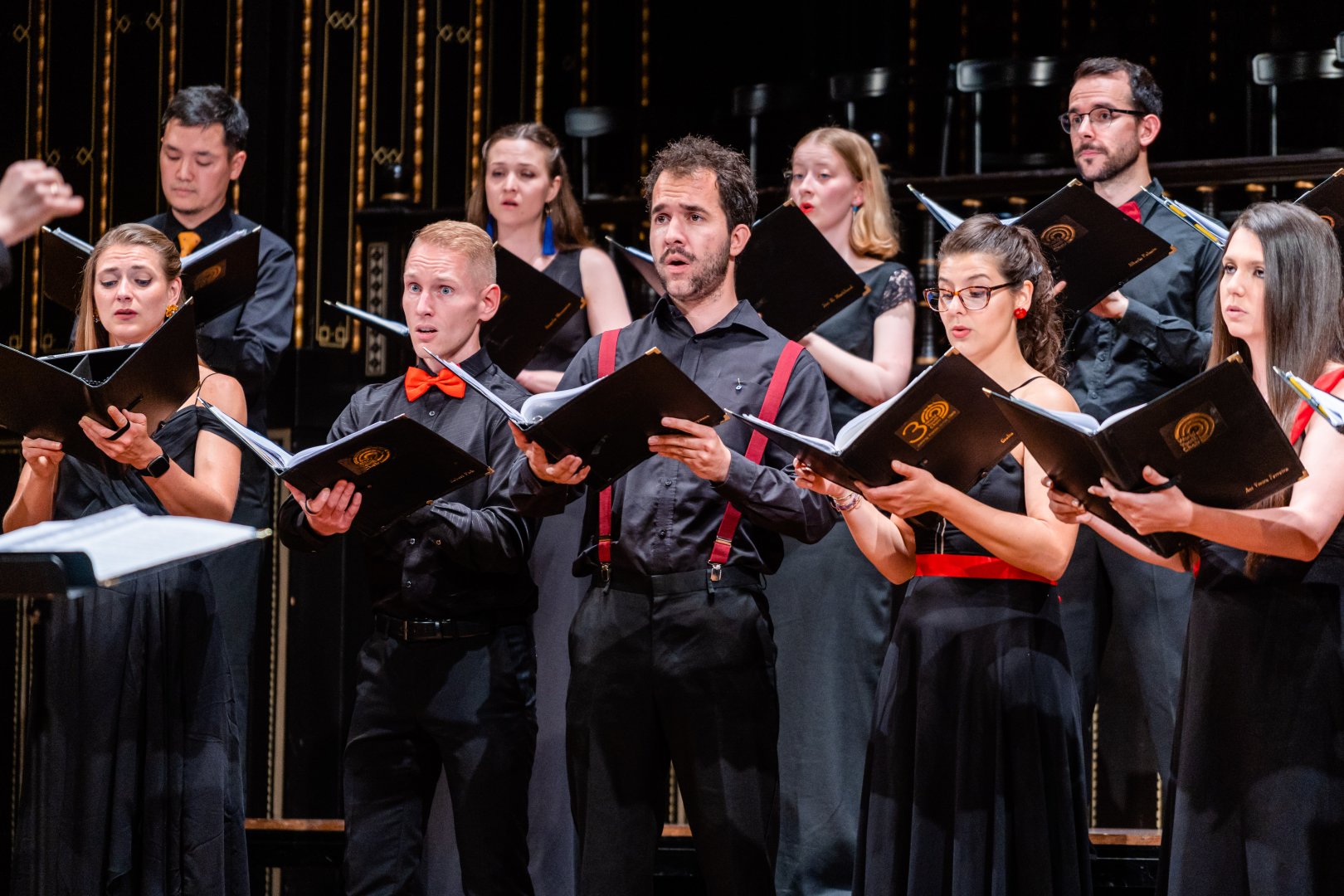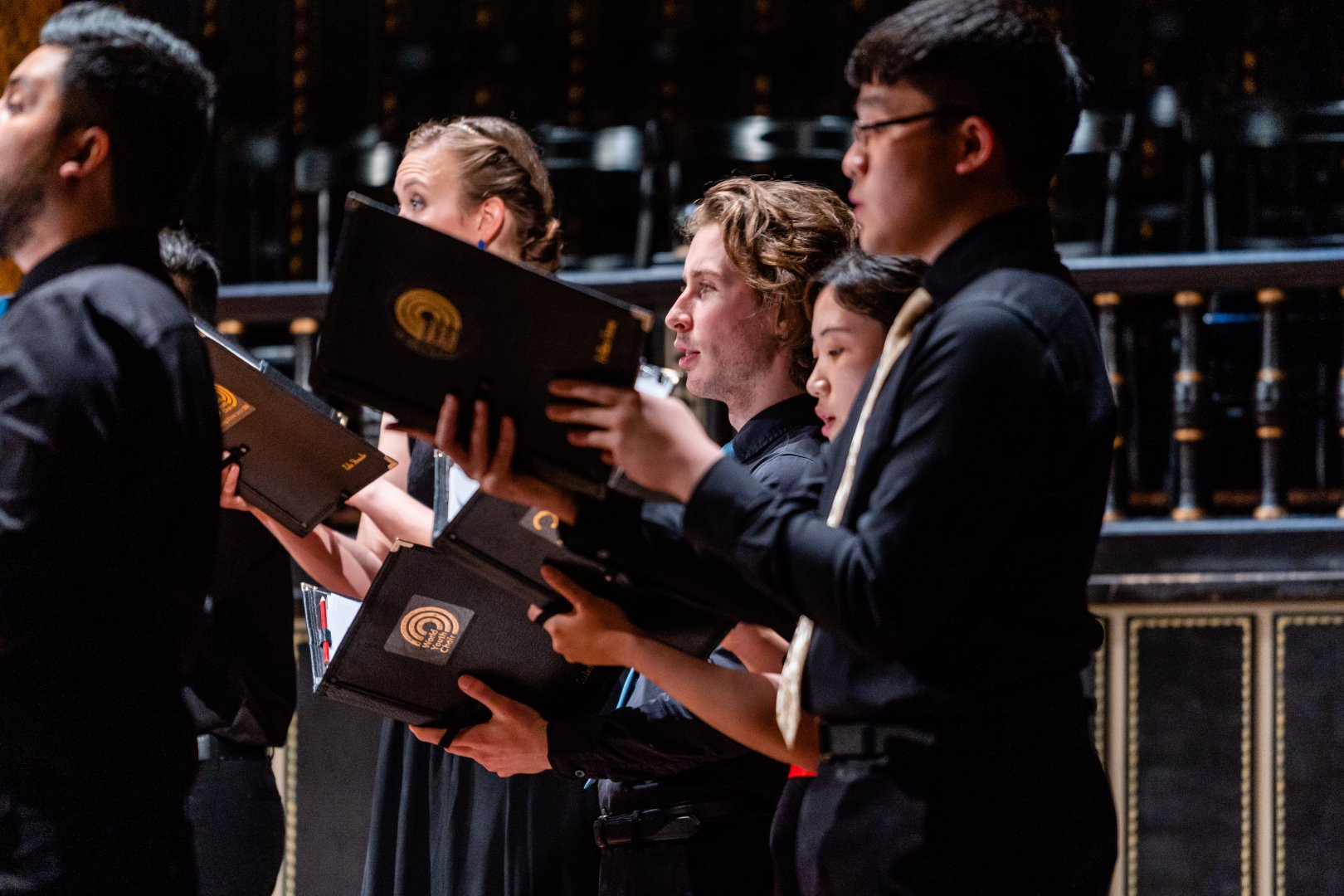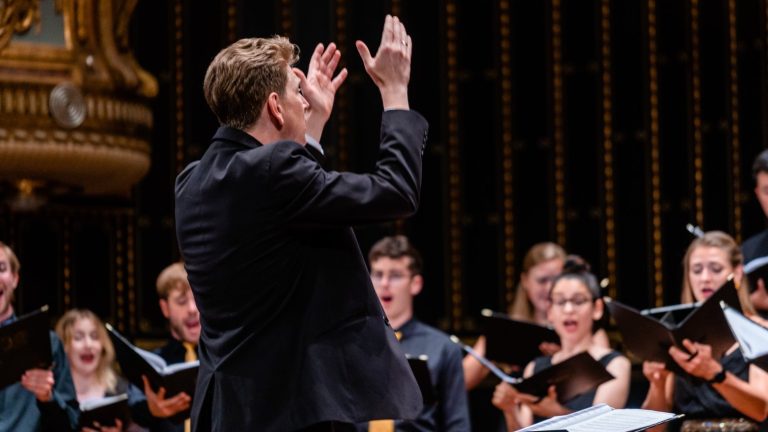From June 6-10, Budapest hosted a roundup of European music industry organizations who met at Müpa Budapest and the House of Music for two related conferences. First, Papageno was the organizer of the third edition of ‘Bach 2 Future’ involving 24 organizations; and secondly, the ‘European Forum on Music 2023’ met for seminars involving 28 organizations, among them the European Choral Association, the European Music Council, Creative Europe Desk Hungary, Jeunesses Musicales International (JMI), and the European Music School Union.
The grand finale for the two conferences was a sumptuous concert at the Liszt Academy by the World Youth Choir. Their impressive performance not only embodied the most august ideals of international cooperation, but presented a sterling example of musical performance worthy of its many past and present laurels.
The World Youth Choir was founded in 1989, initially by JMI, as a companion component to the World Youth Orchestra, and has since gathered, through world-wide recruitment, more than 1,000 singers from 70 countries. The organization was awarded the title of UNESCO Artist for Peace during 1996-1998, and performed at the Peace Nobel Prize Ceremony and Concert in Oslo in 2011.
On June 10, noted choral conductor Zoltán Pad led the grand finale, wherein 41 singers from 26 countries — all alumni from recent years – displayed exemplary levels of intonation, stylistic acumen, and even choreography and drumming while singing thirteen a cappella choral selections from the Renaissance to new works commissioned for this occasion.

Ki Adams (President of the World Youth Choir, a board member of the International Federation for Choral Music (IFCM), and an enthusiastic exponent of Kodály’s musical works and philosophy), personally welcomed the audience at the concert. In an interview the following week, Adams revealed a meaningful backstory: “This was the restart, because in 2016 we were more or less in rescue mode, and then covid came. Prior to coming to Hungary, we performed in Slovenia and Croatia after only three days of rehearsal – and all of it was new repertoire. But in addition to the artistic success of two concerts in Hungary [they also performed in Veszprém on June 11] and the two other countries, it was the being together again after covid … the joy and enthusiasm, and just the sheer pleasure they felt after the silence of the last four years [that made it] a fantastic experience on many levels.”
Their program began with Monteverdi’s “Domine ne in furore,” singing with purity of tone and perfect blend, and then launched into Tadea Vulc’s “Sine sole nihil sum” – a stunning score of great scope, imagination, and color. The program continued with works by Kodály, Ligeti, Brahms, Liszt, Rheinberger, Arvo Pärt, Galina Grigorjeva, and a special commission by Nana Forte: “The Bells” set to the poetry of Edgar Allen Poe. A charming piece by Samo Vovk: “Ta na Solbici” with its polyrhythmic clapping, floor-stomping, and ending with a forte open fifth, easily won the hearts of the audience. Happily, the choir sang it again as an encore.

The renewed Choir’s future plans include more world touring, further expansion of their pedagogical potential and social networking, and for 2024 — a new project with composer Tan Dun, whose specially commissioned “9” will share the program with Beethoven’s 9th Symphony, using 90-100 singers accompanied by the German Youth Orchestra, and conducted by the composer. The information will be available on the World Youth Choir’s website.











